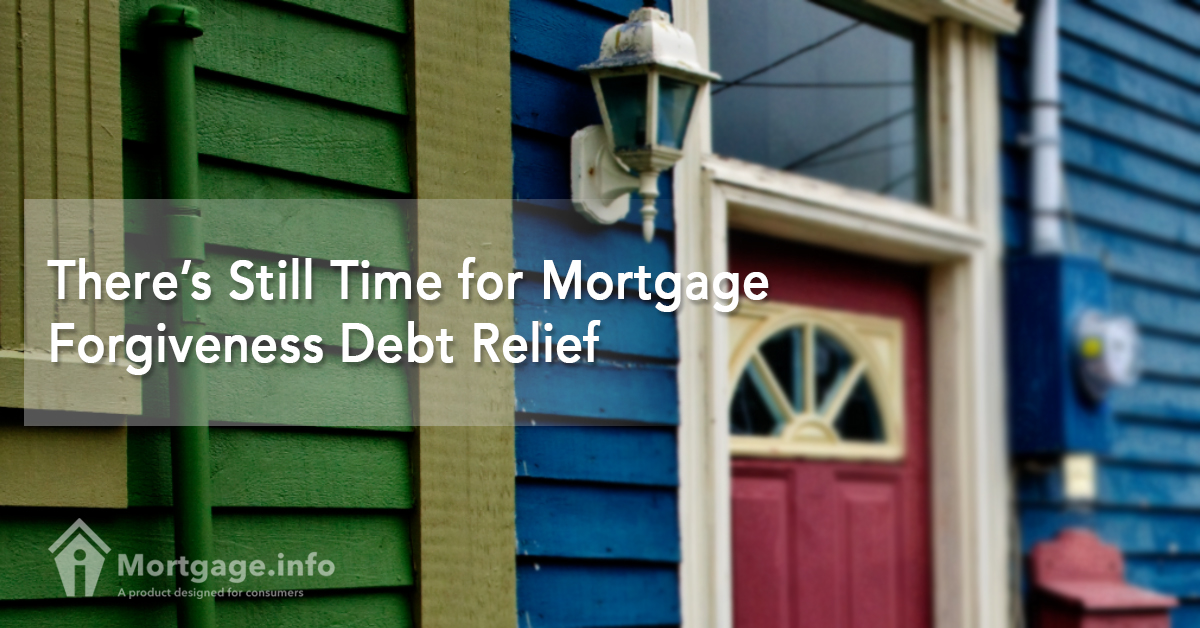It’s one thing to lose your home as a result of foreclosure and yet another to pay taxes for it. The Mortgage Forgiveness Debt Relief Act of 2007, as extended to 1 January 2017, does away with that requirement, exempting eligible homeowners from paying taxes on canceled mortgage debts.
With the extension in place, you can still avail of this temporary tax exemption should your lender forgive your mortgage debt. Find out how below.
What Is Mortgage Forgiveness
A mortgage forgiveness happens when your lender cancels all or a portion of your mortgage debt in connection with a foreclosure, short sale or principal reduction.
When you take out a mortgage or any loan for that matter, you are obligated to repay it. However, you may have missed payments on the loan and the lender would like you to keep paying nonetheless. To mitigate the situation, the lender may offer you to:
- Refinance is when you replace the old loan with a new loan at a lower rate.
- Loan modification is when you pay a reduced monthly payment, with the unpaid loan balance added to the loan, as modified.
If you remain in trouble with your mortgage obligations, the lender will exercise its right to foreclose on the property, subject to your right to challenge. Under foreclosure, the lender will repossess your home and will cancel your mortgage debt as a result. Other ways that your lender forgives your mortgage debt is when:
- Waiver of Deficiency. The lender opts not to pursue any deficiency or shortfall between the proceeds of the foreclosure sale or short sale and the actual amount owed on the mortgage.
- Principal Reduction, The lender will permanently reduce the outstanding principal balance (e.g. on mortgages with negative equity).
What Is Mortgage Forgiveness Debt Relief
Now, the canceled or forgiven mortgage debt becomes a gain under tax laws and thus taxable. But under the Mortgage Forgiveness Debt Relief Act of 2007 (MFDRA), you won’t be taxed for that portion of your income that relates to the canceled mortgage debt.
To qualify for relief from taxes under the MFDRA, you must:
- Have a mortgage balance of less than $2 million. If you owe more than $2 million, you’d have to pay taxes on the amount that remains after you subtract the $2 million amount. Moreover, only $1 million in mortgage debt may be forgiven if you are married but you and your spouse are filing separate tax returns.
- Hold a mortgage securing a principal residence or primary home. A second home, vacation house, or investment property is not eligible.
- File an IRS Form 982, which requires documents to support the transaction, e.g. foreclosure, that resulted in the discharge of debt.
Consult with a tax professional for more details.
What Happens Next
Coincidentally, the MFDRA will expire (unless further extended) a day or so after the Home Affordable Modification Program ends. The HAMP is a government program specializing in loan modification for holders of Fannie Mae and Freddie Mac mortgages.
If you are unable to take advantage of mortgage forgiveness debt relief or the HAMP for that matter, talk to your lender.
Explain to them your current mortgage situation. For sure, you and your lender can work out ways you can possibly remain on top of your mortgage debt and remain in your home.

